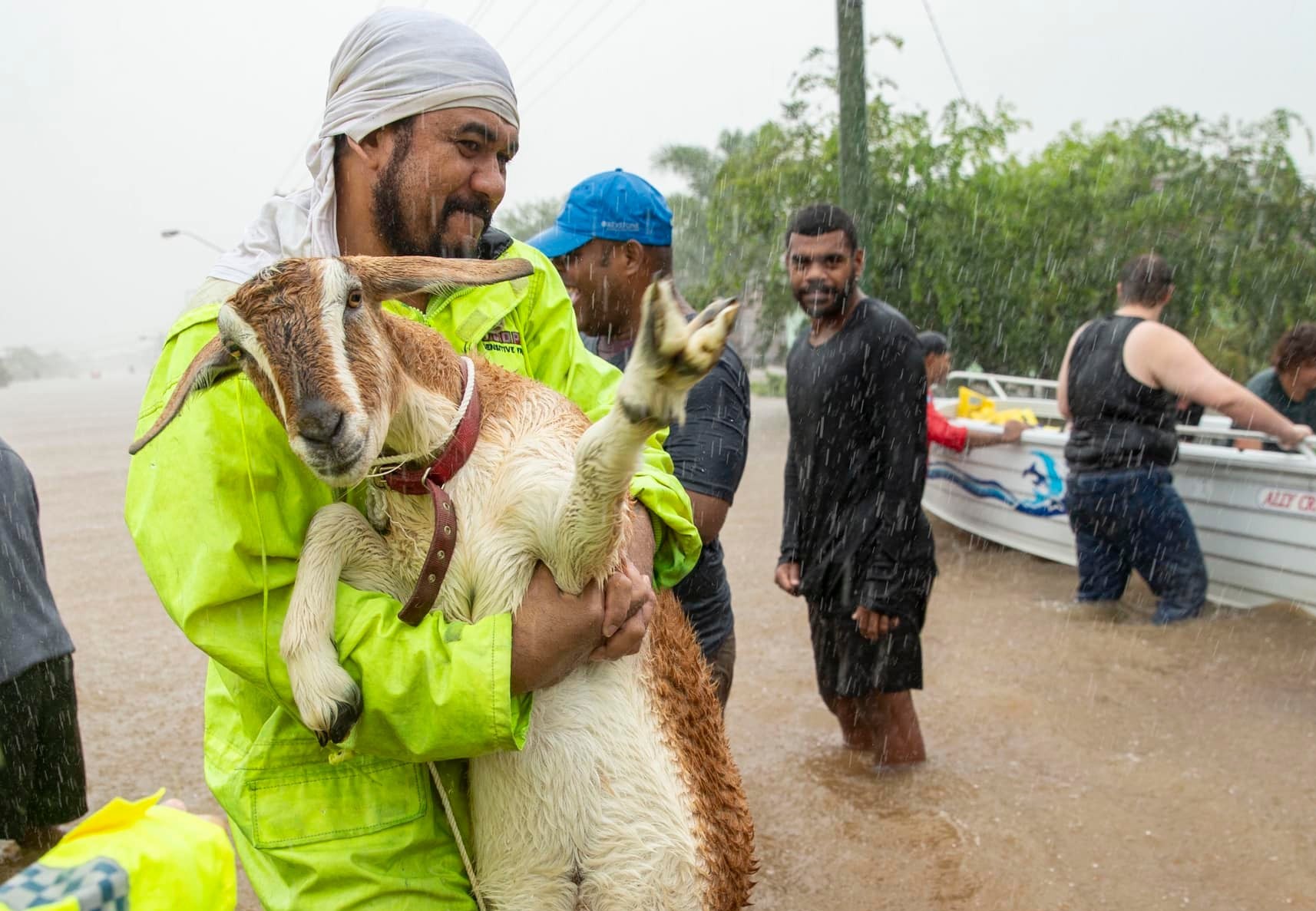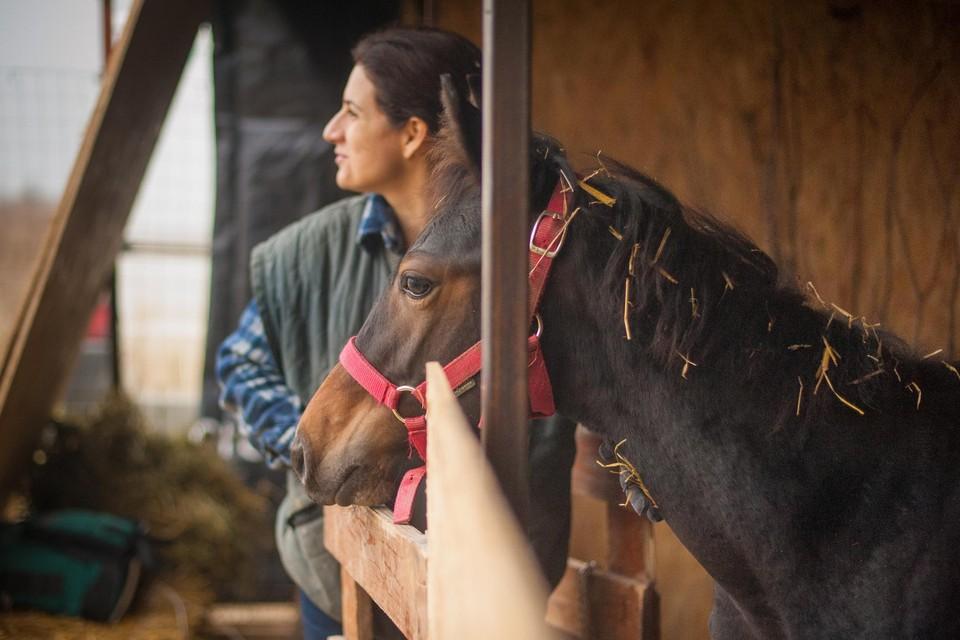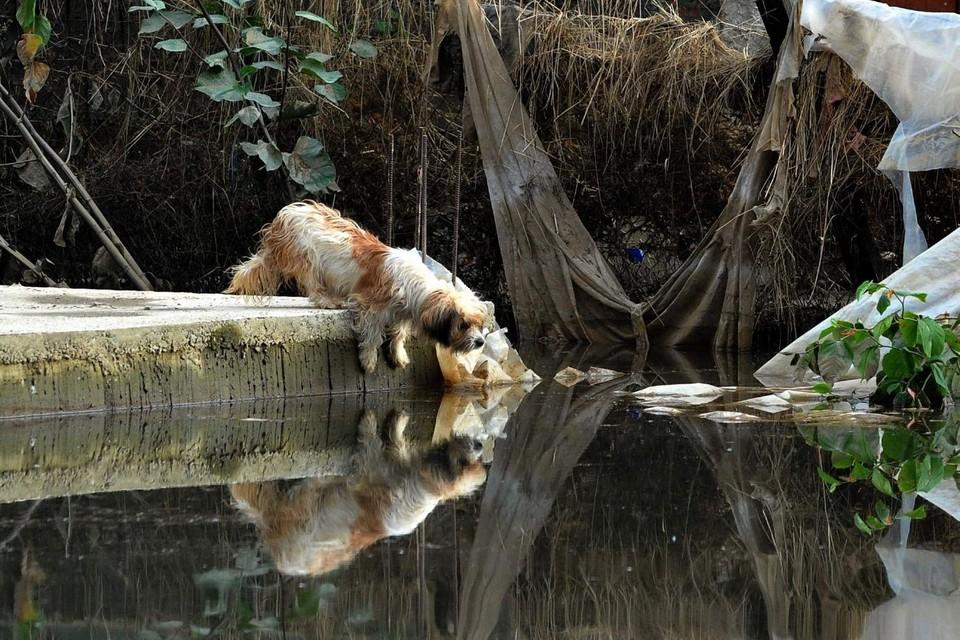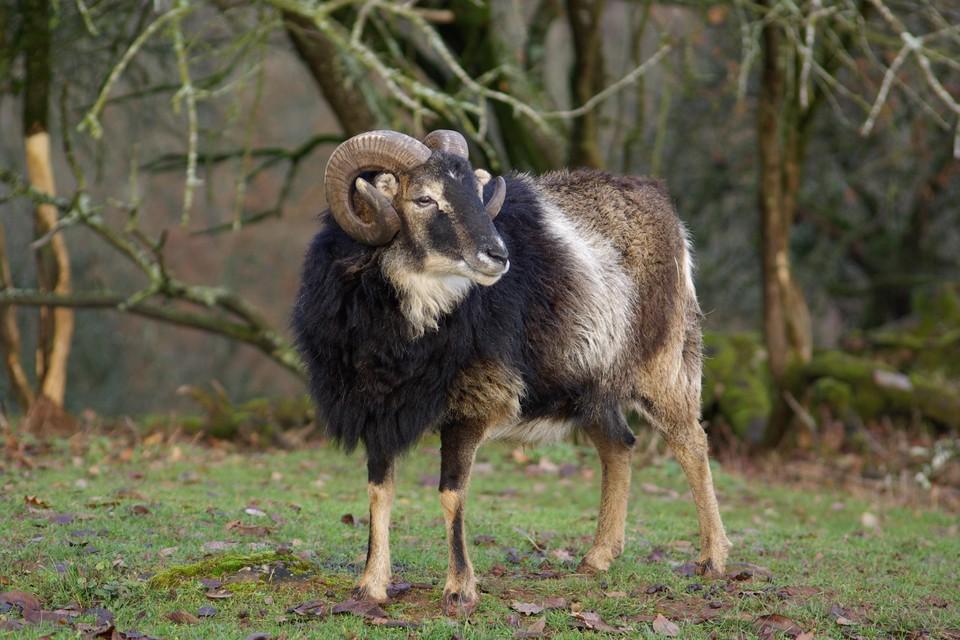
How to protect animals during floods
Planning is key and how to help water-logged animals
Tragically, thousands of animals died in the catastrophic Queensland and New South Wales flash floods in March 2022, with rescue services unable to make it to all calls for help due to flooded and debris-blocked roads. Despite best efforts from rescuers like RPSCA, SES and local councils, wildlife and farmed animals were left stranded and displaced. Sadly, many animals drowned with cows, sheep and horses found dead along the Gold Coast coastline in the days following the natural disaster.
In the aftermath of such floods, animals are either left stranded and displaced, or in search of respite from extreme weather.
- Kangaroos are being forced to venture onto roads after being displaced by floods, leaving them in danger of being hit by vehicles.
- The inescapable torrents of rain and water effectively render wild animals homeless, as possum dreys, tree hollows, nests and burrows are destroyed by the floods. Many nocturnal animals may be seen to be wandering around during the day in a sodden state.
Wildlife rescuers are urging the public to exercise tolerance, learn how to help flood-affected animals, and provide temporary refuge for animals in need, while watching out for displaced roos, koalas or joeys.
Essential reminder: Planning is key. Prepare your animals (pets, farm animals) as part of your family's emergency plan. And learn how to help water-logged animals.
How to PREPARE
Here are things you can do before there is a disaster so you are ready:
- Make a Plan: Know what to do if you stay at home or if you evacuate, and create your personal list of emergency contacts.
- Make an emergency kit: warm clothing, essential medications, valuables, insurance and important papers, mobile phone and charger in waterproof bags.
- Prepare your animals, both domestic and any farm animals. Do not forget animal feed, care items, and documentation, if required.
- Detailed guide on how to prepare your farm animals and horses for disasters
- Detailed guide on how to prepare your pets for disasters
- Listen to warnings and instructions from the authorities on evacuating or remaining in place in an actual disaster.
- Identify the safest route to your nearest relief centre
- Let friends, family and neighbours know your plans
Taking measures to protect your animals ahead of time could help save lives!
If you have to evacuate...
- Take pets, your essential items and emergency kit with you.
- Provide safe shelter for any larger animals in your care. See detailed guide for farm animals and horses here.
- Leave as early as possible to avoid restricted roads
how to help water-logged animals
Please exercise tolerance during the aftermath of floods. If an animal is using your verandah or undercover decking area as a temporary refuge, please remove pets and allow the wildlife this small moment’s respite.
- Should a waterlogged possum or bird wander into your home, the quickest way to contain them safely whilst you call for advice is to gently place an empty washing basket - upside-down - over the animal and cover the basket with a towel or sheet to reduce stress.
- If a reptile (snake or monitor) enters your home, close the door to the room they are in and call your local wildlife rescue organisation for advice. Or try to keep a visual on the animal to avoid a 2-hour search when a rescuer arrives!
- In the case of freshwater turtles being washed down stormwater drains and ending up on beaches - should you find one, please contain the turtle and take a photo for identification before trying to relocate them. Freshwater turtles cannot tolerate ocean water. Many well-meaning members of the public have put freshwater turtles in the sea and this is detrimental to their survival. (A marine turtle has flippers and cannot retract their head or legs into their shell. Freshwater turtles have webbed ‘claws’ and CAN retract their heads and legs into their shells.)
- Marine animals might also be washed up due to the surge - if you spot a sea snake or a marine turtle or any cetacean in trouble - please call for advice before approaching the animal.
- For advice about any wildlife in need of rescuing, please contact your local wildlife and animal rescue organisation (more hotline numbers here).
- RSPCA on 1300 ANIMAL (1300 264 265)
- WILDLIFE VICTORIA: 03 8400 7300 (24hrs)
- Sydney Wildlife Rescue: 9413 4300 (24hrs)
- Australian Seabird Rescue: 0438 862 676
- WIRES: 1300 094 737
- ORCCA (for marine rescues): 02 9415 3333
- Taronga Wildlife Hospital: 9978 4785





